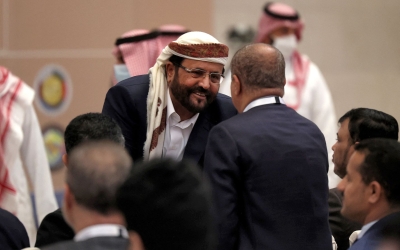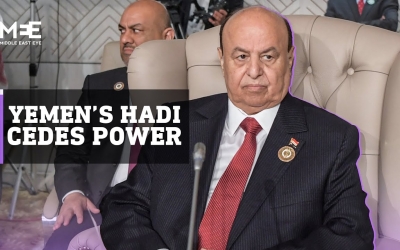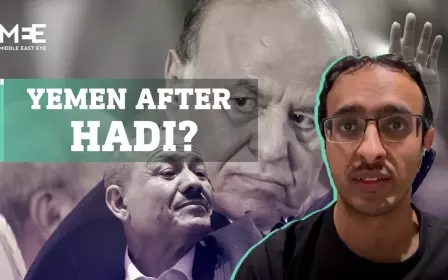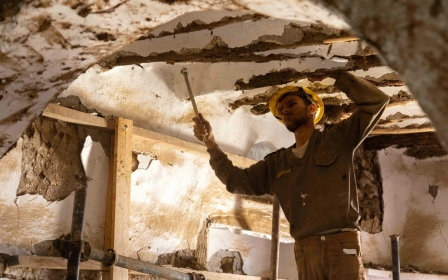Saudi Arabia forced Yemen's president to resign, says report
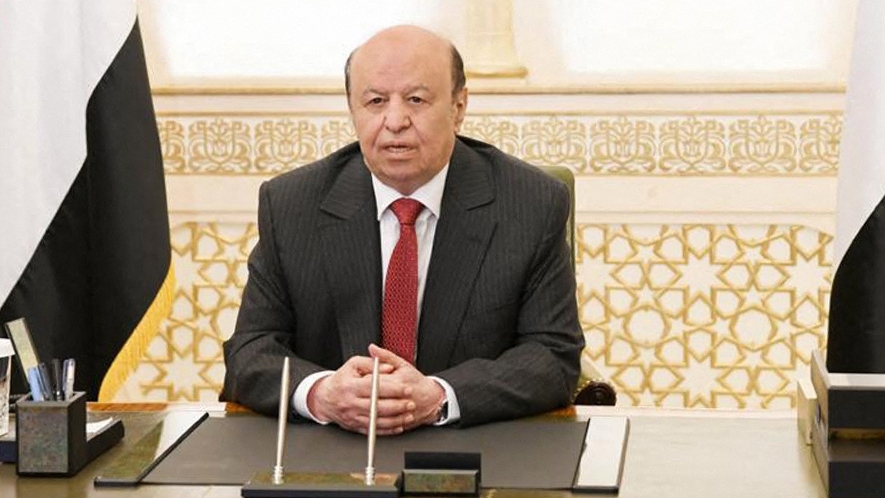
Saudi Arabia forced Yemen's President Abd Rabbuh Mansour Hadi out of office and is keeping him under house arrest in Riyadh, the Wall Street Journal reported, citing both Saudi and Yemeni officials.
Amid talks taking place between Yemeni politicians in Riyadh in the second week of April, when Hadi handed over power to a council of various Yemeni groups, Saudi Crown Prince Mohammed bin Salman (MBS) gave the Yemeni president a written decree that delegated his powers to the council, according to the officials who spoke to the Journal.
"Hadi is effectively under house arrest at his residence in Riyadh without access to phones," a Saudi official told the newspaper. A second Saudi official said few Yemeni politicians had been allowed to meet him, and only with prior approval from Riyadh.
MBS said to Hadi that the other Yemeni leaders believed it was time for him to step down, and Saudi officials threatened to expose evidence of alleged corruption committed by Hadi.
Another Saudi official told the Journal that Riyadh did not pressure Hadi to resign and that the kingdom was not keeping him under house arrest but rather the different pro-government factions in Yemen had lost faith in him and asked Saudi Arabia to persuade him to leave office.
"Saudi Arabia has not orchestrated the removal of Hadi nor threatened to expose alleged corruption," the Saudi official said. "Its role was limited to conveying the desire of the Yemeni factions who participated together in the Yemeni-Yemeni talks to President Hadi."
Hadi announced on 7 April that he would cede his power over to a new presidential council, a move that was welcomed by Saudi Arabia, which provided the government with $3bn in aid in response.
The council includes figures linked to the separatist Southern Transitional Council (STC), the powerful Giants Brigade militia, as well as figures linked to the Islah party, a branch of the Muslim Brotherhood.
Riyadh looking for way out of Yemen
The council's formation also comes against the backdrop of a UN-brokered truce announced to take effect on 2 April, marking the first day of Ramadan. The truce is meant to last for two months, and so far neither side has broken it.
Information coming out of Saudi Arabia appears to indicate that MBS is looking to extract Saudi Arabia from the eight-year-long conflict. Experts believe the move to unify the anti-Houthi bloc is a precursor to securing a final way out, even if it leaves the country mired in crisis for years to come.
The Houthis, however, have rejected the government's new council, saying that it was imposed by a foreign power, and called for an end to what it views as Saudi interference.
The war in Yemen has killed hundreds of thousands of people and devastated the economy, leaving 80 percent of the population of some 30 million people reliant on aid.
Hadi took the helm of a crumbling Yemeni state in 2012 in a political transition plan backed by Gulf states after Arab Spring protests in 2011 that brought down president Ali Abdullah Saleh.
The Houthis say they are fighting corruption and the Saudi-led "aggression".
The United Nations is pushing for inclusive political negotiations to end the conflict, in which several Yemeni factions are vying for power.
The Saudi embassy in Washington did not respond to a request for comment on this report.
Middle East Eye propose une couverture et une analyse indépendantes et incomparables du Moyen-Orient, de l’Afrique du Nord et d’autres régions du monde. Pour en savoir plus sur la reprise de ce contenu et les frais qui s’appliquent, veuillez remplir ce formulaire [en anglais]. Pour en savoir plus sur MEE, cliquez ici [en anglais].


